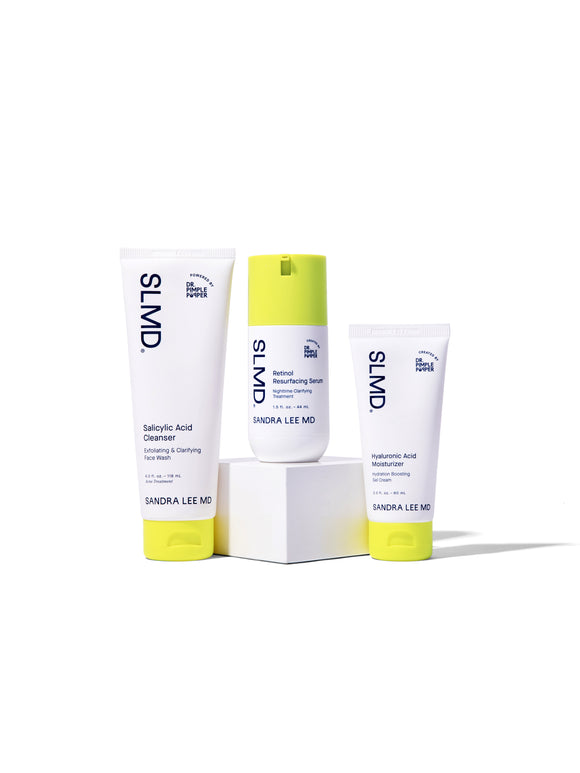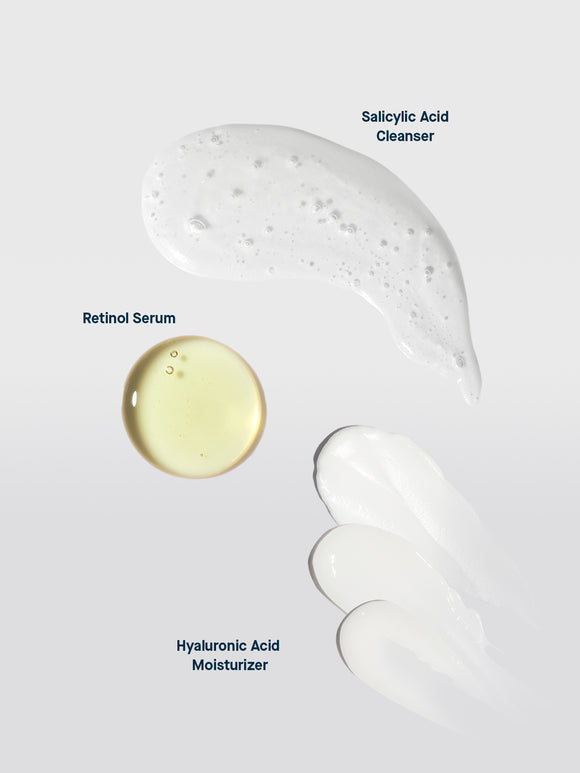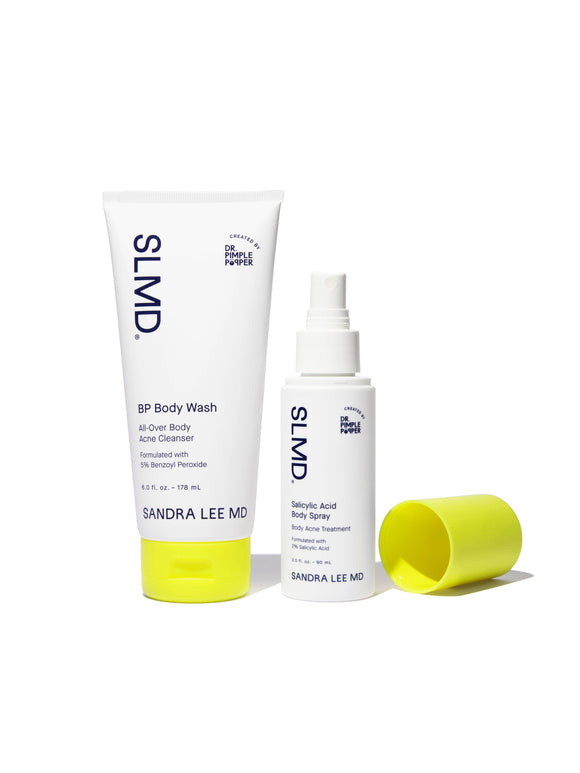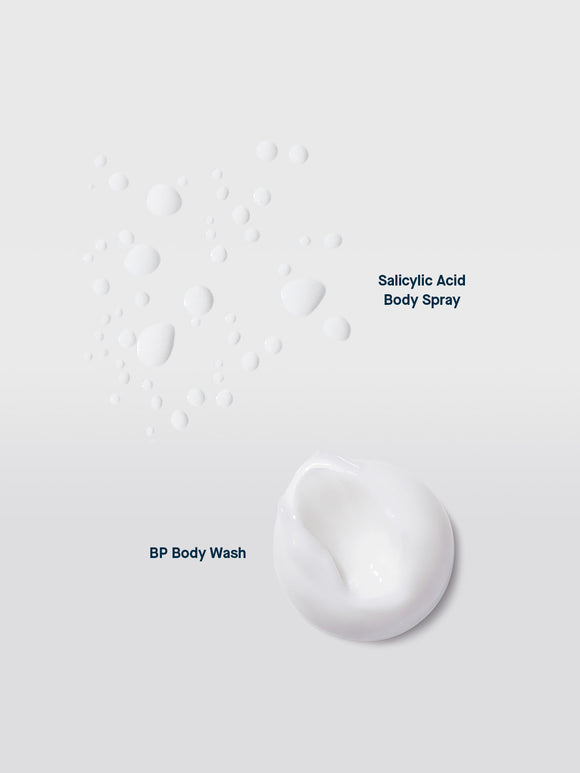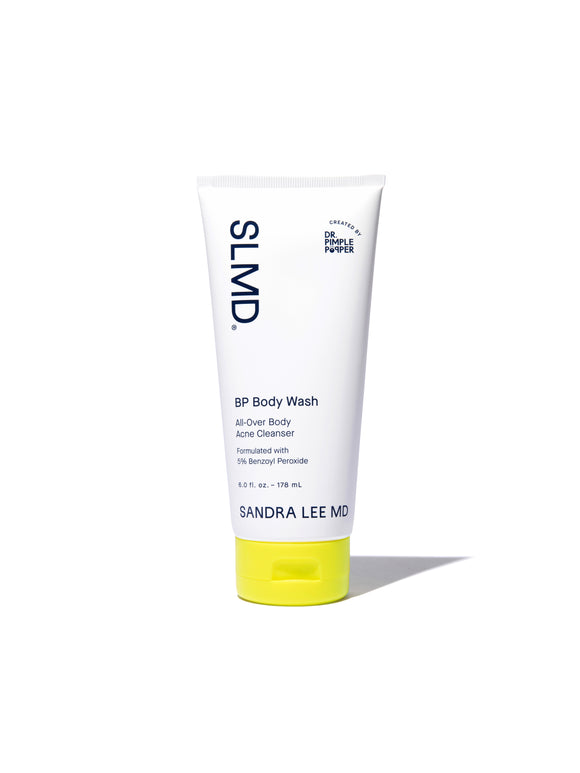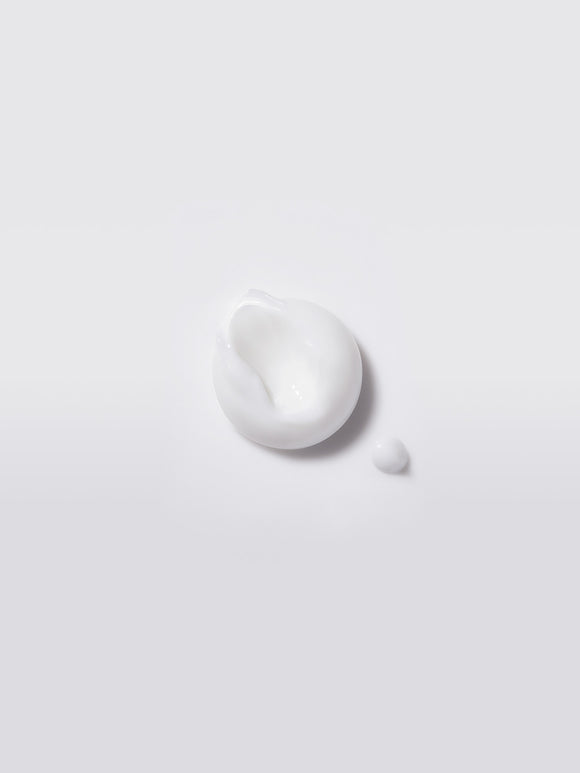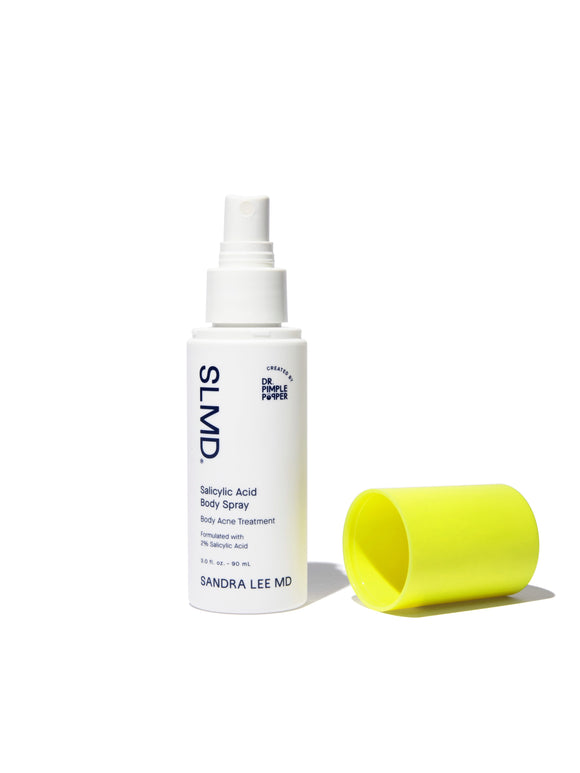
Inside an Acne Consultation with Dr. Pimple Popper
Learn how America's favorite dermatologist diagnoses — and treats — acne.
Published:
3 minute read
Curious what it’s really like to have an acne consultation with Sandra Lee, MD (aka Dr. Pimple Popper)? If you've seen her treat everything from cysts to severe acne on TV, you might wonder what goes on during a one-on-one visit. Here, the board-certified dermatologist and founder of SLMD Skincare shares what happens when she evaluates a new acne patient — and what she wants everyone to know before they step into the office.
What's the first thing you do during an acne consultation?
Dr. Pimple Popper:
No matter what condition I’m treating, my first priority is to help patients feel comfortable. You never know what someone’s been through just to get here — emotionally or physically — so I begin by asking a few open-ended questions, then I just listen. That initial connection helps build trust and makes it easier to find the right treatment path together.
How do you evaluate acne?
Dr. Pimple Popper:
Acne vulgaris, — the most common type of acne — is usually pretty easy to recognize. But no two cases are exactly the same. I start by asking questions to understand a patient’s skin history:
- What’s your skin type — oily, dry, sensitive?
- When did your acne start, and how severe is it?
- What types of breakouts are most common — blackheads, pustules, cysts?
- Is this your skin’s normal condition, or is it better/worse right now?
While I’m examining the skin, I’m looking at the type and severity of acne — and whether there’s any scarring, which changes how we approach treatment.
Dr. Pimple Popper's At-Home Acne Care
How does a patient's medical history affect acne?
Dr. Pimple Popper:
Acne is influenced by a mix of things — like excess oil (sebum), abnormal skin cell shedding, and your skin’s immune response to C. acnes bacteria. Hormones and genetics play a big role, but so can underlying medical issues. I ask questions like:
- Are you on any medications?
- Do you have any medical conditions, including hormonal imbalances?
- Has anyone in your family struggled with acne?
- Have you had your hormones tested recently?
Knowing the full picture helps me identify potential contributing factors — especially in moderate to severe cases.
Can lifestyle habits affect breakouts?
Dr. Pimple Popper:
Absolutely. A patient’s daily habits often play a bigger role than they realize. Things like sports gear, work environments, even how often they wash their pillowcases can affect acne. A violinist might have chin breakouts from their instrument. Athletes often get acne mechanica from helmets or pads. And sometimes, not washing sheets or towels regularly can contribute to breakouts. These aren’t always the root cause, but tweaking these habits can make a real difference.
What common mistakes do acne patients make?
Dr. Pimple Popper:
The biggest one? Giving up too soon. Acne treatment takes time. It’s tempting to switch products constantly or stop using something if you don’t see results right away. But most active ingredients — like retinol or benzoyl peroxide — take weeks or even months to show full results.
There’s also a lot of misinformation online. Some people come in thinking they’ve tried “everything,” but often they’ve never had a full routine with the right ingredients, used consistently.
How dermatologists choose the right acne treatment plan
Dr. Pimple Popper:
It depends on the patient’s skin and lifestyle. I take into account everything we’ve talked about — their acne type, medical history, what they’ve tried — and create a personalized treatment plan. This might include:
- Topicals like salicylic acid, benzoyl peroxide, or retinol
- Prescription medications for hormonal or severe acne
- In-office treatments like peels, cortisone injections, or laser therapy
But even the best plan won’t work if patients don’t follow it. Education and communication are key — I want patients to understand how and why each step works.
Can’t see a dermatologist? How to treat acne at home
Dr. Pimple Popper:
Access is a real issue. If you can’t see a dermatologist right away — because of wait times or cost — my advice is to start with a dermatologist-developed over-the-counter regimen.
That’s why I created my SLMD Acne System: it has the core ingredients we use in-office — salicylic acid, benzoyl peroxide, retinol, and a lightweight moisturizer — all in one routine.
But if after 2–3 months you’re not seeing results — or you’re concerned about scarring — make an appointmentwith a dermatologist. If that’s not possible, talk to your general practitioner. They may be able to help, or refer you for specialized care.

Dr. Lee's Last Word
Acne is one of the most common — and treatable — skin conditions I see. If you’re struggling, don’t be discouraged. The sooner you get started with a consistent, effective regimen, the sooner you’ll start seeing results.





